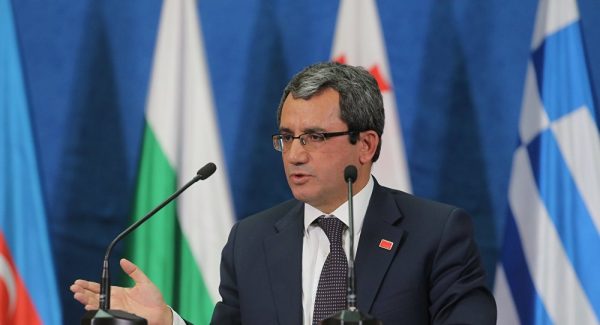Turkish Deputy Foreign Minister Ahmet Yildiz touched upon Armenian-Turkish protocols declared null and void by Armenia: “Armenia needed the protocols more than Turkey. Yerevan does not want to fulfill our conditions and settle Karabakh conflict”.
Thus, the Turkish official once again affirmed that even though his state had signed the protocols, it was not going to implement them, until Armenia did not fulfill their terms handing Artsakh to Azerbaijan (this is what it means to “settle the Karabakh conflict” from the point of view of Turkey and Azerbaijan). In other words, relations with Turkey, according to Yildiz, were so important to Armenia that we would have been ready to agree to the brutal murder of our tens of thousands of compatriots or, at best, to their expulsion. At least, Turks are frankly expressing their position. Another question was to be as sincere before signing the Zurich protocols and say, we will not sign until you fulfill our terms. In that case, this whole process would not have started and lasted this long.
But there is another misconception in the comment of the Turkish Deputy Foreign Minister, which is specific to almost all powers, whether they are regional (as Turkey) or global: because we are strong, countries that have weak economy, less military potential, and fewer population have a greater interest in having good relations with us than we wish to have with those relatively small countries.
This is evident, in particular, by the example of the United States. This country has decided to “press” on Russia, realizing that the two countries are unequal in terms of military and economic potential. The European allies of the United States have to do the same, some willingly (like the UK), and the other part unwillingly (for example, France). Putin, of course, fills fuel onto the fire with his ungrounded pretensions of the world power. In this situation, German Chancellor Merkel is more adequate. Perhaps the historical experience plays a role: in the 20th century, her country “pressed” on to the whole world, and it was a terrible end for Germany itself.
In fact, to say “having normal relations with us is more important for you than for us” is senseless. Everyone needs everyone, especially in the 21st century. Everyone needs not to oppose, but to combine their interests, because the world becomes more and more fragile.
Aram ABRAHAMYAN




















































